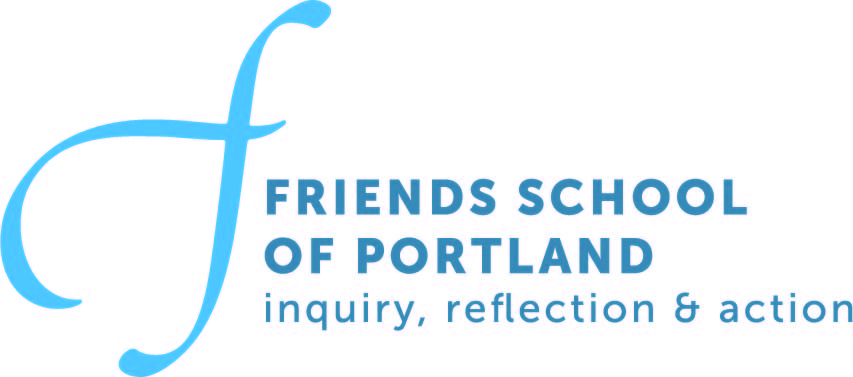Pictured above: Morse Elementary School teacher (and former FSP teacher) Aja Stephan leading a morning workshop.
Each school year, FSP’s faculty and staff decide together and work on a school-wide goal. Social Studies and Science Through the Lenses of Inquiry and Equity/Anti Bias Education, Friends Council Renewal Process, and Writing are all examples of school-wide goals in the last 5 years. Faculty and staff are diving in and digging into the foundational work of Inquiry this school year.
To begin, FSP hosted a conference focused on the practice of inquiry in teaching. The queries that opened the day of teacher-led workshops included:
How does inquiry in teaching practice connect with listening?
How does inquiry in teaching practice connect with justice?
How does inquiry in teaching practice connect with liberatory practice?
Nell, Director of Studies, invited faculty and visiting educators to think big and to think deep as the framework of the day. The morning also centered on defining inquiry as both deductive and appreciative. Deductive inquiry means that the answer is out in the world and can be found. And appreciate inquiry refers to David Cooperrider and Diane Whitney’s Appreciative Inquiry: A Positive Revolution in Change:
“Inquiry and change are not separate moments but are simultaneous. Inquiry is intervention. The seeds of change -- the things people think and talk about, the things people discover and learn, the things that inform dialogue and inspire images of the future -- are implicit in the very first questions we ask…”
Different workshops were led by FSP faculty and visiting educators including:
Approaching Inquiry In Our Early Childhood Classrooms with a Reggio Emila Gaze
Using the C3 Inquiry Model to Create Interdisciplinary Inquiries
Inquiring Minds: Cultivating Inquisitive Self-Talk
Math Inquiry: Layering the Groundword for Inquiry In Math and Beyond
Immersive Experiences to Foster Inquiry in Kindergarten and Middle School Social Studies
Writing Practices that Keep Your Professional Questions Alive
Inquiry and Making Thinking Visible
Storytelling in Circle
Nature of Inquiry Puzzle
As the day wrapped up teachers enjoyed s’mores, mocktails, and conversation. Reflections of the day offer a way to enter into the work of “Inquiry” more deeply this school year.
A few reflections:
I want to lean into the fact that emergence is central to inquiry. What is rising, where are things going, and then build from there.
I went into leading a session thinking “I get to be confused.” But as I went on I found that rooting in what I know helped me ask questions.
As much as I want to teach stuff, I want it to be the right stuff. I need to stop and examine my own assumptions.
As an early childhood educator, I can take so much from thinking about other age groups - elementary on up through middle school.
This is just the beginning of diving into our school-wide goal for this year…more soon!



